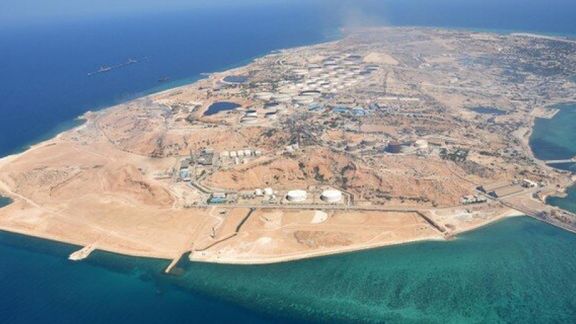China May Withhold Support for UAE's Territorial Claim Against Iran

China may not support the territorial claims by the United Arab Emirates against Iran during a conference underway with Arab states in Beijing, Iran International has learned.

China may not support the territorial claims by the United Arab Emirates against Iran during a conference underway with Arab states in Beijing, Iran International has learned.
The UAE has laid claim to three small islands in the Persian Gulf that Iran took control of in 1971 after the United Kingdom withdrew from the Persian Gulf and the UAE was formed. Other Arab states formally support the territorial claim.
The China-Arab States Cooperation Forum opened in Beijing on Thursday with President XI Jinping speech. The Forum was established in 2004 as a formal dialogue mechanism between China and Arab states. China is seeking to strengthen its relations with Arab states as a model for maintaining world peace and stability, Xi was quoted as saying by state media at the gathering.
The summit is attended by heads of state from Egypt, the United Arab Emirates, Bahrain and Tunisia among others.
A diplomatic source close to the UAE-China negotiations told Iran International that Beijing has decided not to support the UAE's claim of ownership over the islands of Abu Musa, Greater Tunb, and Lesser Tunb at this meeting.
In exchange for this action, the Islamic Republic has promised to disrupt the development of the "International North-South Transport Corridor" (INSTC) project to slow down its progress.
The International North-South Transport Corridor is a strategic Russian-Indian-Iranian project that aims to connect the Caspian Sea to the Persian Gulf and the Indian Ocean.
This project was launched in 2000 with an agreement between Moscow, Tehran, and New Delhi in Saint Petersburg, and subsequently, 11 other countries, including Azerbaijan, Armenia, Kazakhstan, Kyrgyzstan, Tajikistan, Turkey, Oman, Ukraine, and Belarus, joined. Bulgaria is also participating as an observer.
The International North-South Transport Corridor is considered a competitor to China’s “Belt and Road Initiative.”
The Belt and Road Initiative is a plan presented by China's President in 2013 to enhance economic cooperation between China and the international community. Based on the "Silk Road," this initiative plays a key role in Beijing's foreign policy.
On the other hand, the International North-South Transport Corridor is of great importance to Moscow. However, progress on this project has been delayed due to increasing pressure from Beijing on Tehran.
According to information received by Iran International, on the eve of the Arab-Chinese meeting, Beijing sent confidential messages to Tehran, stating that it is willing to refrain from recognizing the UAE's position on the sovereignty of the three islands in exchange for disruptions in the development of the North-South Corridor project.
Based on this information, China expects the Islamic Republic to take practical steps, such as interfering with the planning of the Iranian section of the North-South Corridor and delaying the financing of the project to postpone its implementation.
Last July, Russia sided with the UAE on the issue of the three islands, signing a communique in a conference with the Gulf Cooperation Council, comprising six Arab states. Iran protested Moscow’s move but has remained dependent on its alliance with Russia.
In the joint statement from the Russia-Arab countries meeting held on December 20, 2023, in Morocco, Russia once again supported Abu Dhabi's position on the three islands of Greater Tunb, Lesser Tunb, and Abu Musa was once again supported.
Sergey Lavrov, Russia's Foreign Minister, represented Moscow at this meeting.